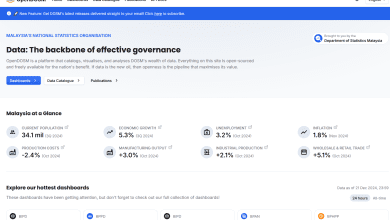Introduction
Often we forget the things we should remember and remember the things we should forget. War memorial stands as a lasting testament committed to reminding citizens about those who made the ultimate sacrifice so we may live in peace and harmony.
Ipoh Echo spoke to those who took up arms and fought on our side during the two World Wars, the Malayan Emergency (1948-1960) and Confrontation with Indonesia (1962-1965). These men who had seen action during the troubled times, were in Ipoh to attend memorial services spread over a three-day period from Thursday, June 11 to Saturday, June 13.
Location: Taiping


Hendrik Willem Hol was with the Australian infantry regiment who, along with local troops, fought the communist terrorists. He was a dedicated soldier and was proud to serve for his nation. Although the job required him to be on foreign soil, it didn’t bother him. His focus was on helping Malaya win the war. That was until he met Mee Yoke, an Ipohite.
“She was the prettiest girl I’ve ever set eyes on. Until today, I can’t take my eyes off her,” said Hendrik in jest while looking at his wife of 50 years, Mee Yoke Hol.


They live in Portland, Victoria and are blessed with three sons. Her niece lives in Ipoh while her two sisters are in Kuala Lumpur.
Ipoh Echo met John Kenny, 69, after the service at the Kamunting Christian Cemetery, Taiping. It was his first memorial service in Malaysia. John was asked for his opinion on wars.
John opined that wars are bad. They create problems and resentment, as killing someone is never justifiable. “War is bad because innocent people die. They volunteered to go to war but they still die. We need to solve problems without going to war. People can only say that war is good when they can prove that there is no loss on the winning side. But history proves them wrong. The winning side too suffers. Nobody gains anything from wars,” said John.


Location: Batu Gajah






God’s Little Acre was a run down and neglected cemetery until Dato’ R. Thambipillay, a retired Superintendent of Police, discovered it and gave it a fresh ‘lease of life’. Thambipillay started the annual memorial service in 1980 when he was OCPD of Batu Gajah.
The service is attended by foreign dignitaries representing the countries of those who gave their lives for the defence of the country.
Interred here, besides army and police personnel, are civilians, tin miners and planters who were killed during the Malayan Emergency (1948 to 1960).


Location: Ipoh




Ipoh Echo spoke to Dato’ R. Thambipillay, the President of Wira Association Malaysia who has done so much, from tracing the two missing tablets on the original cenotaph and, subsequently, adding two new ones to the new cenotaph. Thambipillay was also responsible for revitalising the Gurkha cemetery in Kem Syed Putra, Tambun.
“I was involved in the Malayan Emergency serving in the police force. Besides having experienced hardships in the jungles, I’ve witnessed tragedies affecting both civilians and service personnel. I was lucky to have survived. Therefore, it’s only proper that I do something to remember those who were killed in the line of duty. I began with Batu Gajah then Tambun and finally the Ipoh cenotaph.”


Ipoh Echo did an exclusive interview with Professor Dr Colin Wendell-Smith, 88. A Brit and currently living in Tasmania, Colin was a medical doctor serving the British Army during the Emergency. This was his first memorial service in Malaysia. He was a guest of Ken McNeil, the Tasmania-based Aussie veteran and organiser of the Taiping service. “I lead a happy life. The saddest bit was last year when my wife died. We have known each other for 70 years and been married for 63 years.”


Conclusion
Each location bears its own significance, characteristics and sentiments. As one stands in front of the monument, one should be mindful of this continuum of history and the peace we, the present generation, enjoy. The sacrifices of these veterans should remain etched in our memory. Lest we forget.
Ipoh Echo Team


